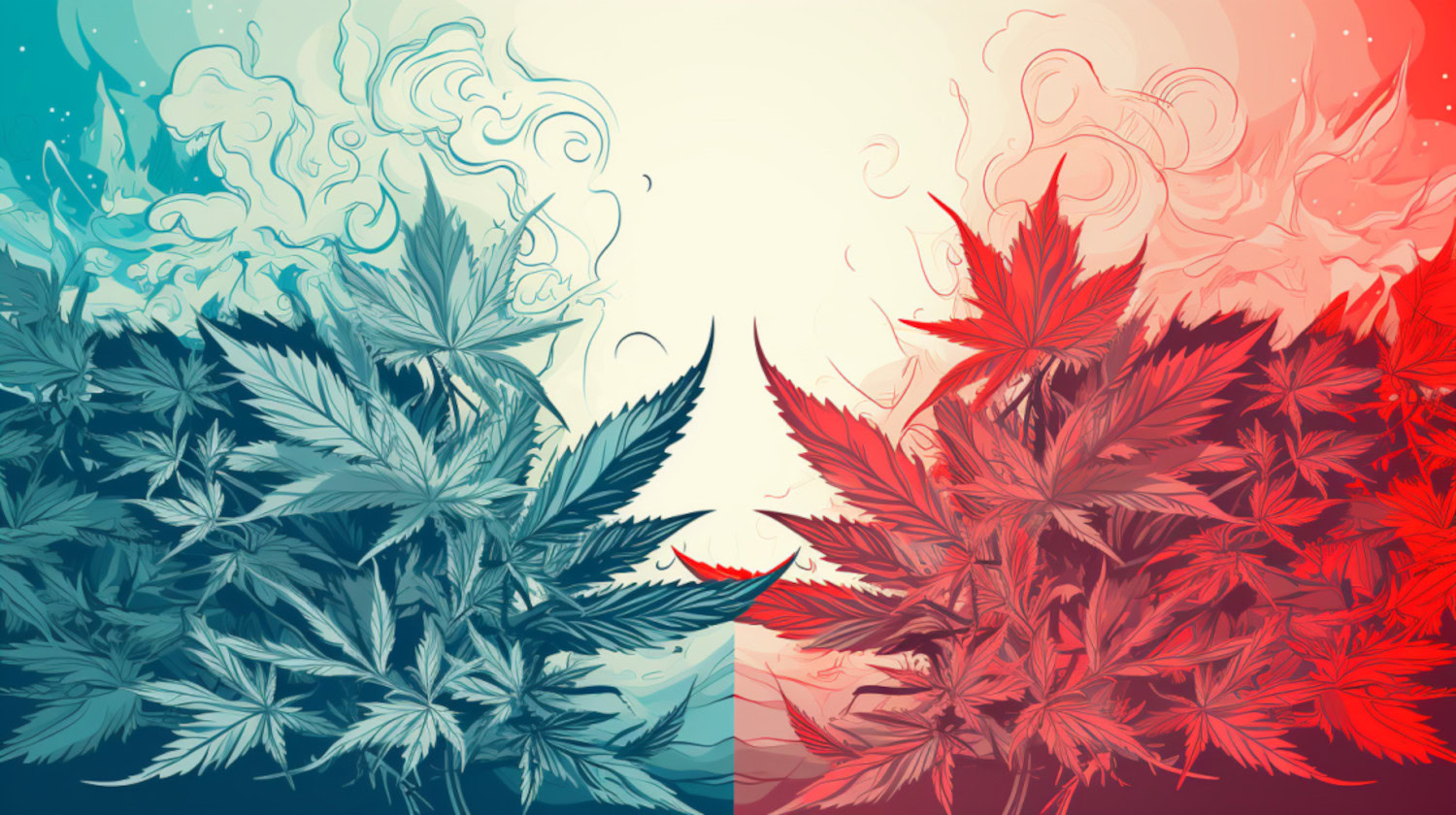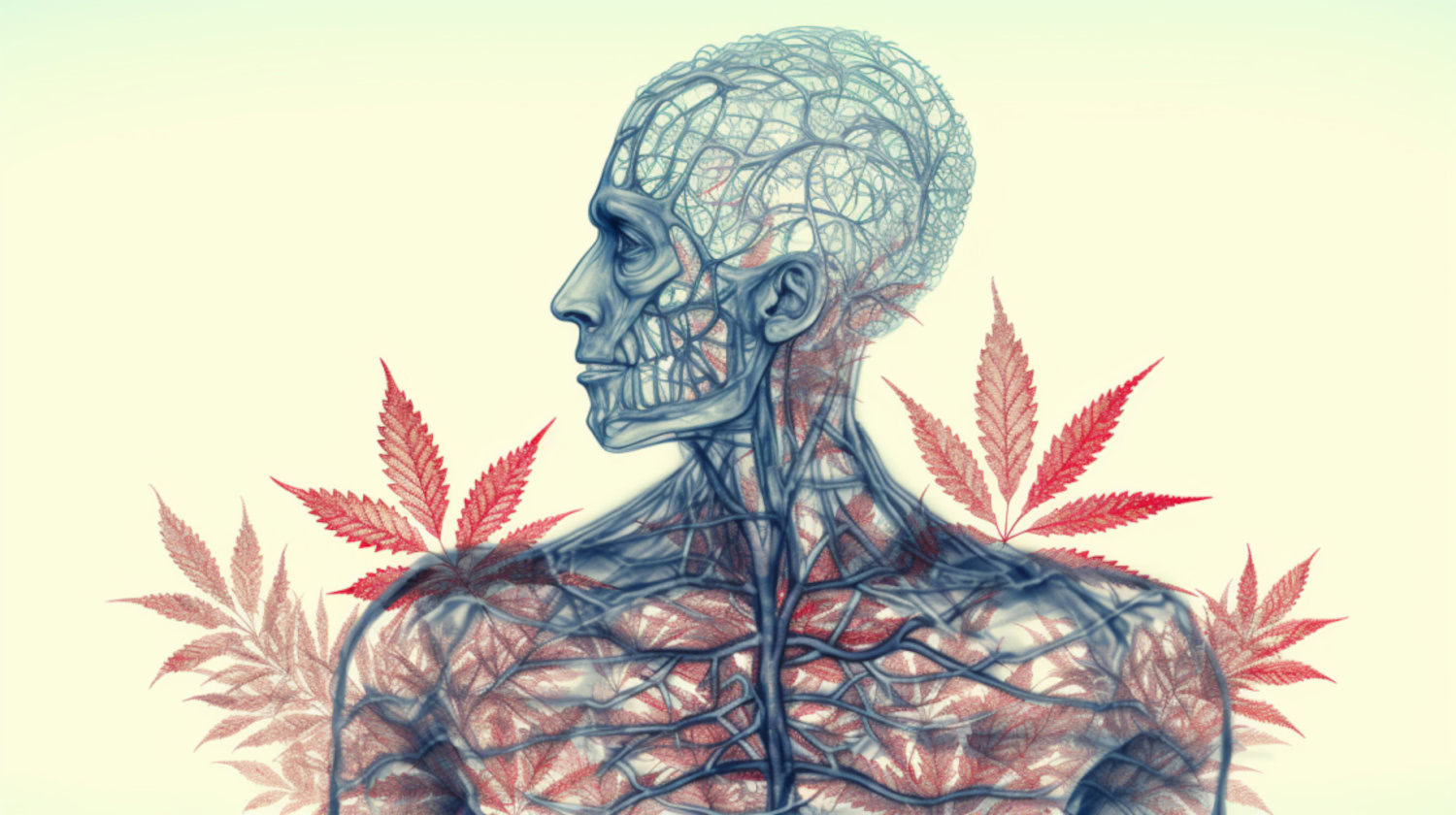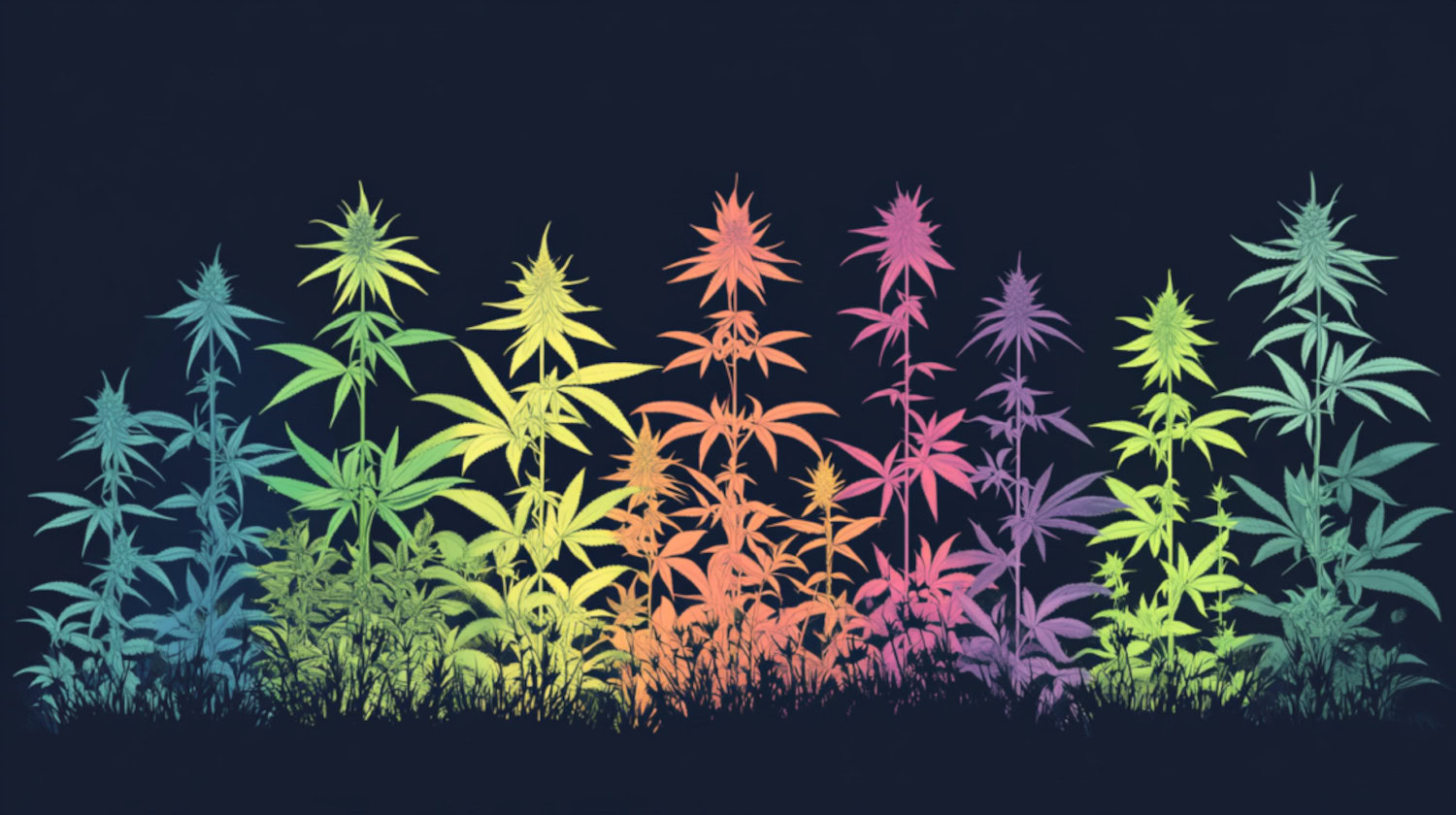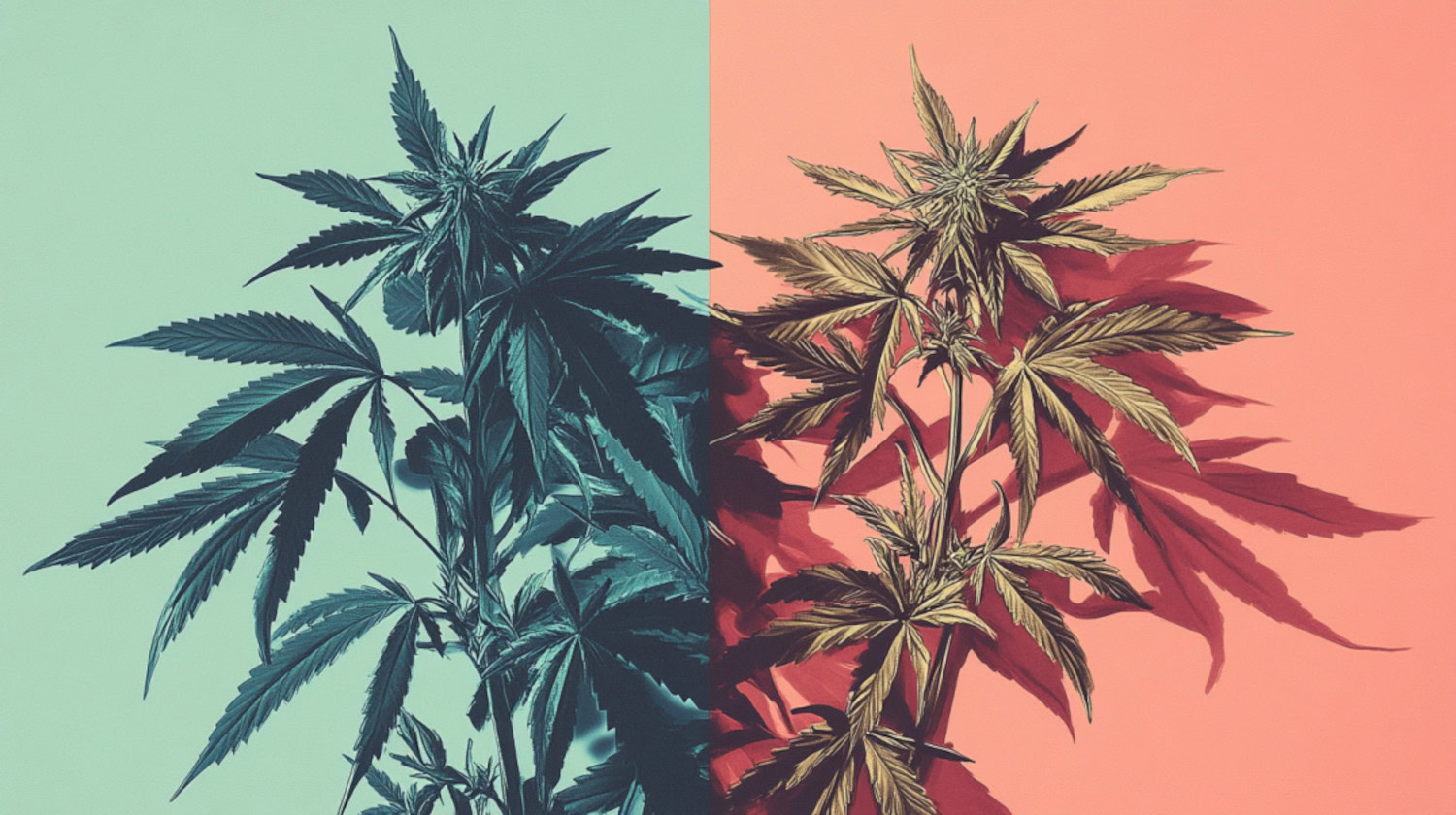Key Takeaways
- THC and CBD both work through the body’s endocannabinoid system, but interact with different receptors.
- Evidence for CBD canceling the effects of THC is mixed, with no clear results available.
- Drinking water, eating healthy snacks, and taking a relaxed walk are the best ways to sober up from THC.
As cannabis legalization spreads throughout the US, the number of people using cannabis and the industry itself has changed. Much of the THC that’s available today is more potent than it used to be. Not only can this make it difficult to dose, but it can also significantly increase the risk of overconsumption.
Some people believe that CBD can counteract the effects of THC. In reality, does CBD cancel THC?
How Do CBD and THC Work Within the Body?
In this article, we’re going to be referencing information provided by our resident doctor, Dr. Brian Kessler. Unless otherwise noted, all the quotes in this article are attributed to him.
The body has a specific system that cannabis influences called the endocannabinoid system (ECS).1 The ECS consists of certain receptors that cannabinoids like CBD interact with. Through this interaction, cannabis is able to exert various effects on the body.
While some people aren’t quite aware of the differences between THC and CBD, they are significant. THC provides the high that’s associated with cannabis, while CBD does not cause intoxication.
Another big difference is the receptors that THC and CBD can interact with. THC is known to be a partial agonist at certain endogenous cannabinoid receptors, while CBD has a low affinity for those same receptors.2 This shows that while CBD and THC may often be lumped together, there are distinct differences between their properties and the ways they interact in the body.
“CBD and THC work together in the body to help enhance absorption and potential benefits over what either cannabinoid could provide on its own,” says Dr. Brian Kessler
The phenomenon Dr. Kessler refers to is known as the entourage effect. While these substances may provide their own benefits, research has demonstrated that their benefits are much more significant when combined.3
If taking CBD and THC together, then it’s important to do some research and understand the effects of this combination. It’s also a great idea to speak with a medical professional or your personal doctor, as they’ll be able to make sure that this combination won’t pose a significant threat to your health and wellness.
Does CBD Cancel THC?

Some regular cannabis users wonder, “Can CBD counteract THC?”
Dr. Kessler notes, “While the research is limited, and anecdotal evidence suggests there may be some merit to the claim, there isn’t sufficient evidence to say that CBD counteracts the effects of THC when administered after using THC.”
It’s important to note that some contradictory evidence exists within the available research. There are many reasons for this, but they could include the lack of information available, studies that may be influenced by external factors, and the fact that everyone responds differently to cannabis.
One study found “no evidence of CBD reducing the acute adverse effects of THC on cognition and mental health. Similarly, there was no evidence that it altered the subjective or pleasurable effects of THC.”4
Another study examined how CBD and THC interacted to influence recognition and recall. It found that “the presence of CBD in recreational cannabis may protect against the memory-impairing effects of THC.” The authors did note that “these cross-sectional studies are limited by self-report with regard to dose, frequency, and potency of cannabis used, possible relationship of type of cannabis with individual factors (e.g., it cannot be determined whether individuals who sought more perceptual-altering effects used cannabis with greater THC content or vice versa), and recall bias regarding the types of symptoms experienced.” Due to these factors, it’s difficult to make significant claims about how THC and CBD can influence the brain and its functioning.5
Another group of researchers found that CBD did have an effect on both the potency and efficacy of THC. However, this study was done in cell lines, which makes it difficult to make claims based on its results.6
One study found that in rats, sex differences were one of the most influential things on THC metabolism. It found that when THC was injected into rats, females produced more of the primary active metabolite that influences the effects of THC, 11-OH-THC.7
Can CBD Sober You Up When You're High?
Regular cannabis users wonder whether or not CBD can help them sober up from THC.
“While consumer stories about sobering up with CBD are fairly common, there is minimal evidence to suggest that taking CBD before using THC may counteract some of the adverse effects like anxiety and paranoia,” Dr. Kessler notes on the subject.
Some research has found that taking CBD before THC was associated with lower intoxicating effects. This specific research also mentions that some symptoms, including paranoia, were reduced when CBD was taken preemptively. The authors also note that both experimental and epidemiological data show that CBD may reduce the paranoia that might come when using THC.5
Some anecdotal reports say CBD can be very helpful when it comes to sobering up. For other people, CBD doesn’t have much of an effect. Exercise and hydration may be effective strategies when trying to sober up. Regardless of the method used, stay safe and put your health and wellness first while combining substances.
What's the Best Way to Use CBD to Counteract THC?

If you are interested in using CBD to counteract THC, some options may have better results than others. Referencing the work of Laprairie et al. Dr. Kessler noted, “While the majority of research has not been able to show that CBD can counteract THC, a single study demonstrated that CBD may reduce anxiety and paranoia when taken before THC.”
As Dr. Kessler mentioned, taking CBD before THC may help mitigate some of the adverse effects that can come from THC. While this is an effect that some may experience, it’s not guaranteed and shouldn’t be counted on. The best ways to cope with the unwanted effects of cannabis are to reduce the dose or abstain from cannabis altogether.
Many people don’t think about the order in which they take substances, but the order may actually have a significant impact on the effects felt. Being careful about the order in which CBD and THC are taken can give a glimpse into the effects that might be experienced.
The quality of products is also important to consider when using CBD to counteract THC. It’s essential to make sure that products come from a trusted source and a reputable brand. Looking at a product’s ingredients is another great way to know the effects that it might provide.
What's the Best Way to Feel Less High?
For most people, a bad high will simply be unpleasant and not produce any serious effects or health concerns. Dr. Kessler observes, “While some claim CBD is the best choice, the most trusted ways to sober up from an unpleasant high are time and staying hydrated.”
Drinking water, eating a healthy snack, and taking a slow walk are ways to encourage the body to cycle out THC. The unfortunate reality is that time is the most helpful when it comes to returning to a sober state. It is recommended to relax and get some sleep while waiting out a negative cannabis experience.
A good rule of thumb is to always start with a small dose of cannabis and gradually increase the amount in the future if needed. It’s better to go low and slow than to take an amount of cannabis that’s overwhelming.
If you’re having a bad high and experiencing unwanted effects, it can be alarming at first. Remain calm and make sure that you’re staying present in the moment. People rarely experience serious health effects due to taking too much cannabis, but you should still reach out to a medical provider if you have serious concerns. It’s always better to be safe than to be sorry, so don’t hesitate to get medical attention if you feel it’s needed.
References
- Lu HC, Mackie K. Review of the Endocannabinoid System. Biol Psychiatry Cogn Neurosci Neuroimaging. 2021;6(6):607-615. doi:10.1016/j.bpsc.2020.07.016 ↩︎
- Martin-Santos R, Crippa JA, Batalla A, et al. Acute effects of a single, oral dose of d9-tetrahydrocannabinol (THC) and cannabidiol (CBD) administration in healthy volunteers. Current pharmaceutical design. 2012;18(32):4966-4979. doi:https://doi.org/10.2174/138161212802884780 ↩︎
- Berthold EC, Kamble SH, Siva, et al. Comparative Pharmacokinetics of Commercially Available Cannabidiol Isolate, Broad-Spectrum, and Full-Spectrum Products. European Journal of Drug Metabolism and Pharmacokinetics. 2023;48(4):427-435. doi:https://doi.org/10.1007/s13318-023-00839-3 ↩︎
- Englund, A., Oliver, D., Chesney, E. et al. Does cannabidiol make cannabis safer? A randomized, double-blind, cross-over trial of cannabis with four different CBD:THC ratios. Neuropsychopharmacol. 2023;48,869–876. https://doi.org/10.1038/s41386-022-01478-z ↩︎
- Boggs DL, Nguyen JD, Morgenson D, Taffe MA, Ranganathan M. Clinical and Preclinical Evidence for Functional Interactions of Cannabidiol and Δ9-Tetrahydrocannabinol. Neuropsychopharmacology. 2017;43(1):142-154. doi:https://doi.org/10.1038/npp.2017.209 ↩︎
- Laprairie RB, Bagher AM, Kelly ME, Denovan-Wright EM. Cannabidiol is a negative allosteric modulator of the cannabinoid CB1 receptor. Br J Pharmacol. 2015;172(20):4790-4805. doi:10.1111/bph.13250 ↩︎
- ooper ZD, Craft RM. Sex-Dependent Effects of Cannabis and Cannabinoids: A Translational Perspective. Neuropsychopharmacology. 2017;43(1):34-51. doi:https://doi.org/10.1038/npp.2017.140 ↩︎
The information in this article and any included images or charts are for educational purposes only. This information is neither a substitute for, nor does it replace, professional legal advice or medical advice, diagnosis, or treatment. If you have any concerns or questions about laws, regulations, or your health, you should always consult with an attorney, physician or other licensed professional.




